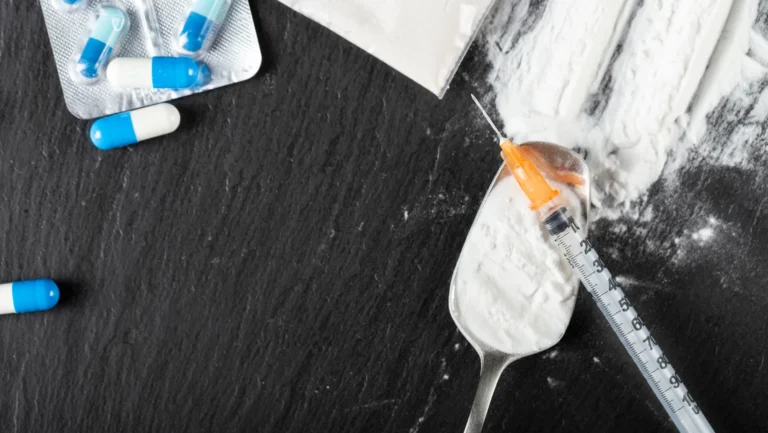Table of Contents
ToggleThe Most Addictive Drugs and How To Get Help
While all drugs are addictive and have the potential for abuse, some are more addictive than others. The answer to which drugs are the most addictive varies according to who you ask. Researchers consider a number of factors when assessing the potential addictiveness of a drug. These include the harm it causes, the extent to which it interferes with the brain’s dopamine system, how pleasurable it is to use, and the degree to which the drug causes withdrawal symptoms. While a substance use disorder (SUD) of any kind will wreak havoc on the life of its victims, these substances are known to be particularly addictive:

Some Highly Addictive Drugs/Substances Are:
- Heroin: Heroin is an opiate that slows down certain functions of a person’s brain and nervous system by attaching to molecules on cells known as opioid receptors. The immediate effects of heroin include feelings of well-being, euphoria and relief from physical pain. The intense withdrawal from this drug includes flu-like symptoms, depression, insomnia, and anxiety and is the leading cause of relapse. Heroin is especially dangerous due to the high potential for overdoes and death. Heroin can be injected, snorted or smoked.
2. Cocaine:
Cocaine comes in two forms: powdered cocaine which is sniffed, or crack cocaine which is smoked. Although they are pharmacologically the same, smoking the drug tends to be more addictive. Cocaine is often cut with other substances to increase yield and potency. Cocaine increases euphoria, excitement, and alertness. It is highly addictive and may be regularly abused in a “binge” pattern.
3. Methamphetamine:
Methamphetamine, also known as crystal meth, is an addictive stimulant drug. It is smoked, snorted, or injected. Crystal meth provides a short, intense high that leads to euphoria, a rush of energy, and a boost in confidence. Meth causes severe damage to the liver and kidneys, heart problems and structural changes in the brain. Dental issues are synonymous with meth use, and users commonly suffer from gum disease and tooth loss – a condition known as meth-mouth.
4. Alcohol: Although alcohol is legal in most countries, it is estimated that up to 22% of people who have taken a drink will develop a dependence on alcohol at some point during their life. The long term effects of alcohol abuse include cardiomyopathy, arrhythmias, strokes, high blood pressure, fatty liver, alcoholic hepatitis, fibrosis, cirrhosis, cancer, and an impaired immune system. Like heroin, alcohol withdrawal can be severe and requires medical treatment and hospital admission.
Factors Contributing to Addiction:
The addictive potential of a drug is influenced by several key factors:
- Dependence potential: The speed and ease with which the user develops a physical and psychological need for the substance.
- Withdrawal symptoms: The severity of unpleasant effects experienced when the use of the drug is discontinued.
- Impact on the brain’s reward system: The intensity and rapidity with which the drug affects the brain’s reward pathways, triggering the release of dopamine and creating a sense of pleasure and reinforcement.
Apart from this, environmental factors, such as peer pressure and availability of the drug, as well as genetic predisposition, also play a significant role in an individual’s risk of developing an addiction.
Addressing the Challenges of Addiction:
Getting Help:
There are a number of treatment options that can effectively treat addiction. If you suspect that you may have a substance use disorder, a good starting point can be to speak to a registered addiction counsellor. They can assist in assessing the extent of the problem and recommend suitable treatment options.
Recovery852 is headed by Grant Sanders. He has over fifteen years of experience and over 3,000 hours of clinical experience working in addiction recovery. With a degree in Social Science, he is a U.S. licensed, accredited and internationally certified addiction professional. If you or a loved one is struggling with addiction contact Recovery852 today.
- Different Types of Addiction
- Support Network In Recovery From Addiction
- Effective Treatment for Addictive Behaviours
- Cognitive Behavioural Therapy For Addiction
- Setting Realistic And Reachable Wellness Goals In Recovery
- How Addiction Affects Families
- Sober Curious: A Movement For Change
- The Five Rules Of Recovery
- What Is Acceptance and Commitment Therapy?
- Mental Health 102: Understanding Depression
- Unpacking Wine Mom Culture
- The Dangers of Addiction Replacement
- Nurtured By Nature: Nature In Addiction Recovery
- The 12 Steps For Atheists
- A Deeper Look Into Dual Diagnosis
- Financial Wellness in Addiction Recovery
- How Does Stress Affect Addiction?
- Mental Health 101: Understanding Anxiety Disorders
- Talking About Marijuana Use Disorder
- Yoga Practices in Addiction Recovery